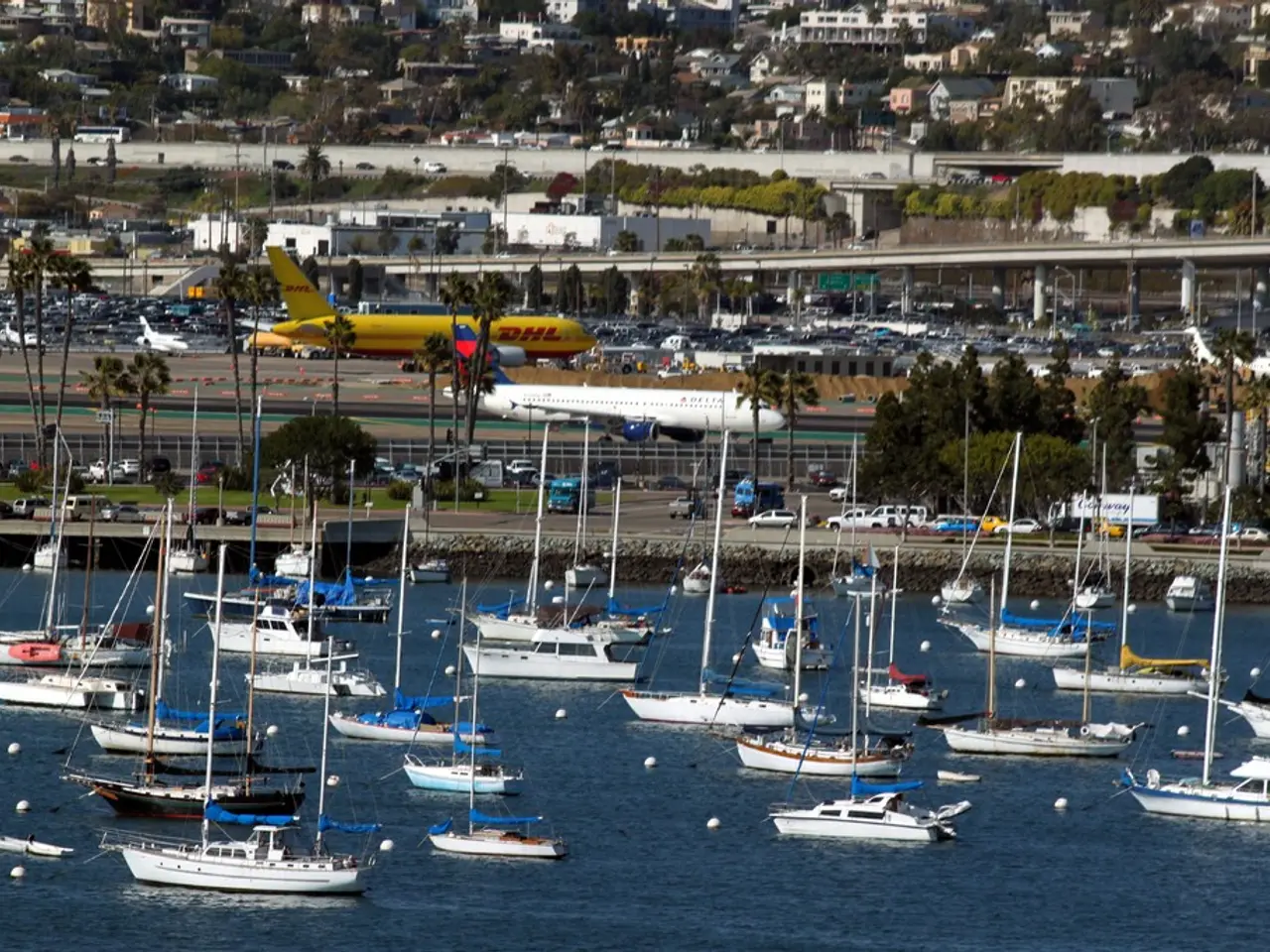Enhancing the Security of the World's Oceans
Airbus Tackles Maritime Challenges with Innovative Solutions
In the realm of naval aviation, Airbus is making significant strides, addressing a host of current maritime challenges. The company's focus is primarily on the development of the A321 MPA (Maritime Patrol Aircraft), a modern platform designed to replace aging fleets like the French Navy's Atlantique 2.
The A321 MPA offers enhanced maritime surveillance and patrol capabilities, improving performance and operational reach in maritime environments. By incorporating modern technology on a flexible, long-range commercial airframe adapted for maritime patrol duties, Airbus is setting new operational levels for naval aviation, ensuring maritime security and reconnaissance.
Competition in the maritime patrol aircraft market is fierce, with Airbus directly competing with Boeing’s P-8A Poseidon. However, Airbus aims to offer equivalent or superior maritime reconnaissance platforms, addressing national security and defense modernization challenges for maritime nations.
Beyond the A321 MPA, Airbus is also preparing for the challenges of the next half-century with solutions in rotary wing, fixed wing, unmanned aerial vehicle (UAV) and satellite systems. One such innovation is the high-altitude pseudo-satellite (HAPS) Zephyr, which is designed to fly for months at a time, combining the presence of a satellite with a UAV's payloads for global surveillance.
Airbus is also involved in the maritime industry, providing products such as ocean patrol aircraft, satellites, and communication systems to protect the oceans. The A320M3A is lined up to fulfill a range of C4ISR functions and technical roles such as maritime patrol and anti-submarine warfare.
The company's role in maritime solution-engineering is highlighted as the architect of integrated tactical systems of UAVs, planes, and rotorcraft. For instance, the VSR700 UAS extends the visual range and reach of corvettes and larger warships, providing a capability enhancement for missions from anti-surface warfare to search and rescue.
Airbus' purpose is to provide actionable intelligence based on important data for customers, allowing them to make informed decisions. An example of the usefulness of this system is that it could potentially alert two small craft on a collision course near Corsica.
The H160M HIL, a modular and versatile multi-role aircraft, is introduced for navies in surveillance and interception missions. This aircraft, along with Airbus helicopters like the AS565 Mbe and NH90, are deployed for nautical counter-terrorism.
As the world's transport of goods is predominantly carried out by shipping, the importance of maintaining maritime security cannot be overstated. Straits such as the Strait of Hormuz, Suez Canal, and Straits of Malacca are seeing record numbers of container ships, oil and fuel tankers, dry bulk carriers, and ships transporting vehicles. However, these busy waterways also pose risks, as demonstrated by the aftermath of the Erika oil spill in 1999, which showed the potential for significant economic and environmental damage due to bad weather at sea.
Retired Rear-Admiral Alexis Latty describes cruising the Straits of Malacca as "pretty scary" due to the presence of ships, some of which are pirates, fishing vessels with erratic courses, or big tankers with sleepy captains. These challenges underscore the need for robust maritime security measures, which Airbus is committed to providing.
In conclusion, Airbus is tackling maritime challenges with its innovative solutions, improving maritime patrol and surveillance capabilities to meet modern naval defense needs while managing broader aerospace supply chain and manufacturing challenges that affect overall delivery and operational readiness. The company's commitment to the maritime industry is evident in its development of products like the A321 MPA, Zephyr, and the H160M HIL, among others, ensuring the safety and security of our oceans for generations to come.
Sources: 1. Airbus's A321 MPA Maritime Patrol Aircraft: A Game Changer for Naval Aviation 2. Airbus Faces Engine Shortages and Supply Chain Vulnerabilities 3. UN Report Warns of Increasing Threats at Sea Due to Climate Change 4. Airbus C295 Aircraft for Maritime Surveillance and Patrol 5. Airbus Delivers A350 Freighter's Horizontal Stabilizer
- Science and technology advancements in maritime environmental-science play a crucial role in Airbus' innovative solutions for addressing climate-change impacts on oceans.
- The business potential of the maritime industry is significant, with energy-efficient vessels a focal point for finance investments in the transportation sector as part of the general-news shift towards sustainability.
- The lifestyle of future generations depends on healthier oceans, with Airbus' contributions to education-and-self-development programs promoting awareness of the importance of maritime conservation.
- The sports industry may also face challenges due to climate-change effects on weather patterns, making it vital for Airbus to provide reliable weather forecasting systems for maritime activities.
- The integration of information and communication technology in Airbus' maritime solutions is essential for streamlining business operations, ensuring efficient responses to emergency situations, and enhancing overall performance.
- Collaboration between industries like finance, industry, and technology is vital for Airbus to develop cutting-edge maritime solutions that ensure the security and sustainability of our oceans, while promoting a connected and resilient world.




